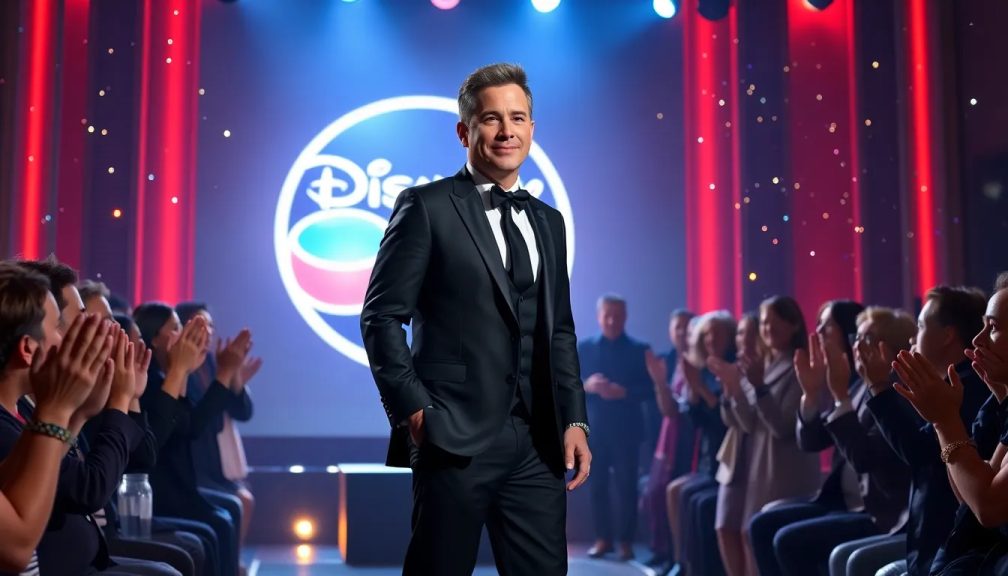Disney and ABC reinstate Jimmy Kimmel after censorship uproar

The recent developments surrounding Jimmy Kimmel's show have stirred a significant conversation about censorship, broadcasting standards, and the power dynamics in media. As Disney reinstates Kimmel, the implications of this decision extend beyond just the late-night landscape; they touch upon the intricate relationships between media corporations, government influence, and public opinion. Understanding these layers is vital for grasping the current media climate.
Broadcasting controversies and the role of regulation
The controversy began when FCC Chair Brendan Carr publicly pressured Disney to take action against Kimmel's late-night show. His remarks sparked criticism from various political figures, including prominent Democrats and even some Republicans. For instance, Senator Rand Paul expressed that Carr had "no business" intervening in such matters, while Senator Ted Cruz likened Carr's threats to something out of a mafia film, suggesting an overreach of governmental authority in entertainment.
This situation highlights the delicate balance between regulation and creative freedom in broadcasting. The FCC, historically tasked with overseeing media content, faces scrutiny regarding its influence on programming decisions. As media giants navigate their corporate strategies, they must also consider the potential repercussions of governmental pressure.
Station owners exert pressure on content decisions
Disney's decision to reinstate Kimmel does not guarantee that his show will be broadcasted universally across all ABC-affiliated stations. For example, Sinclair Broadcast Group, a conservative media company, has declared its intention to not air Jimmy Kimmel Live! until it is assured that the show meets their standards for national broadcast. This move underscores how station owners can influence programming decisions, often reflecting their audience's expectations and corporate philosophies.
- Sinclair's stance demonstrates the potential for content censorship based on ownership ideology.
- Local stations have the power to decide which programming aligns with their community values.
- Censorship debates often arise in the context of mergers and acquisitions in the media sector.
The landscape of media mergers and political pressure
The controversy surrounding Kimmel is not just about late-night humor; it occurs against the backdrop of larger media consolidation efforts. Both Nexstar, a key player in this situation, and Disney are currently seeking approval for significant mergers. This context raises questions about how these companies might react to political pressure when their business interests are at stake.
Anna Gomez, the only Democrat on the Republican-majority FCC, pointed out that companies seeking merger approvals could be more susceptible to governmental demands. This dynamic complicates the relationship between media corporations and regulatory agencies, suggesting a potential for bias influenced by political affiliations.
Viewer reactions and public discourse
The public's response to Kimmel's suspension and subsequent reinstatement has been intense and varied. Many viewers have taken to social media to voice their opinions, leading to widespread discussions about censorship, freedom of speech, and the role of late-night television in political discourse.
- Supporters of Kimmel argue that humor is a vital tool for political critique.
- Opponents of his style believe that his content is divisive and does not serve community interests.
- Viewer engagement has increased, with many calling for accountability from both broadcasters and the government.
Implications for the future of broadcasting
The reinstatement of Kimmel's show serves as a critical case study for the future of broadcasting in the United States. As media companies face pressure from both the government and their viewers, the outcomes of such controversies could set precedents for how similar situations are handled in the future.
Looking ahead, several factors could influence the landscape:
- The evolving role of the FCC in regulating content and responding to political pressures.
- The reaction of other media companies to government demands, which could either encourage or deter censorship.
- The continued engagement of audiences, who are increasingly vocal about their expectations from media content.
In today's digital age, social media plays an instrumental role in shaping public opinion and influencing media narratives. Discussions surrounding Kimmel have proliferated across platforms like Twitter and Facebook, allowing viewers to express their outrage or support in real time.
This engagement has significant implications:
- Social media creates a platform for collective action, which can lead to changes in broadcasting decisions.
- Viewer sentiment can be quickly gauged, providing networks with immediate feedback on their content.
- Online discourse can amplify calls for boycotts or support campaigns, impacting advertisers and sponsors.
As this situation continues to unfold, the interplay between governmental pressure, media ownership, and viewer expectations will undoubtedly shape the future of late-night television and beyond. The reinstatement of Kimmel not only reflects a victory for free speech but also underscores the complexities of maintaining that freedom within a rapidly evolving media landscape.
To delve deeper into public reactions and the ongoing discourse, you can watch this insightful video that captures diverse opinions on the matter:




Leave a Reply